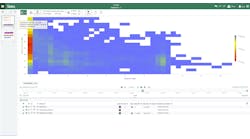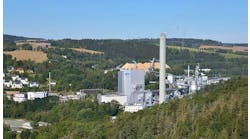The worldwide market for operator panels suffered a drastic decline in 2009 after the extreme years of 2007 and 2008 and will only recover slowly over the next few years, according to ARC's newly published "Operator Panel Worldwide Outlook." In line with its new policy, ARC doesn't tell us how big the market is -- you have to pay up to find that out -- but the unannotated bar graph which accompanies the press release suggests that it will grow by a third in all or approaching 6% per annum between 2009 and 2014.
What ARC does tell us, however, is that the overall picture is complicated by changing competitive landscape and ongoing technological development. Although the market as a whole is comparatively mature, strong growth is expected in the relatively new segment of "automation panels."
These panels, which have their own built-in control functionality, are now approaching the capability of embedded panel PCs and are introducing new competitors to the marketplace. As the technology matures, expect Asian suppliers, especially from Taiwan, to enter the fray. "The market for operator panels is divided into two parts: suppliers that offer the panel plus controller business and suppliers that sell operator panels alone," explains report author and ARC analyst Florian Güldner. "During the coming years, technology will increasingly shift towards automation panels and this technological change will significantly alter the competitive landscape."
Consolidation
These new competitors will be entering a market which has seen very rapid consolidation among the companies that buy operator panels. ARC estimates that there were roughly 30,000 OEMs and system integrators delivering intermediate products to automotive manufacturers in 1988 but, by 2000, there were just 5,600 left. OEMs and end users are increasingly expressing a preference for suppliers or third-party system integrators offering broader solutions packages that enable one-stop shopping. In response, many vendors are looking to expand from being components-only suppliers to solutions providers in specific vertical markets such as steel processing, pulp & paper and automotive.
Operator panels based on Windows CE first started to appear in 1999, promising easy and cost-effective integration into plant systems by leveraging the communications support offered by the operating system. With operator panel hardware fast approaching commodity status, software is increasingly the differentiator in purchasing decisions, with automation vendors exploiting ever more modularization within their portfolio.
The report pays particular attention to the situation in Eastern Europe where it identifies a widening gap between those countries such as Latvia, Belarus, Lithuania, Estonia and Hungary, whose markets are in free fall, and those such as Slovakia, Slovenia, the Czech Republic and Poland, which have largely weathered the economic crisis.
- The decline in the market for automation systems for discrete industries, which began in 2007 and accelerated with the rapid contraction of manufacturing in 2008, continued to slide in 2009, says ARC, which describes short term prospects as bleak. However, it expects moderate market growth to resume during the latter part of the five year forecast period. In that longer term, ARC argues that manufacturers' continuing need to raise productivity, reduce operating expenses and improve quality will ensure that capital investment in automation will resume across many industries.
Key feature of the recovering market will be growing demand for Programmable Automation Controllers (PACs) capable of providing real-time logic, motion and process control, in addition to HMI and other functions, on a single platform. PACs offer a single programming and engineering tool, a single programming language and a single tag database for the complete system. ARC notes that diversified suppliers which focus on the infrastructure and process industries have been in better shape to withstand the downturn than those focussed largely or solely on particular discrete industries.



